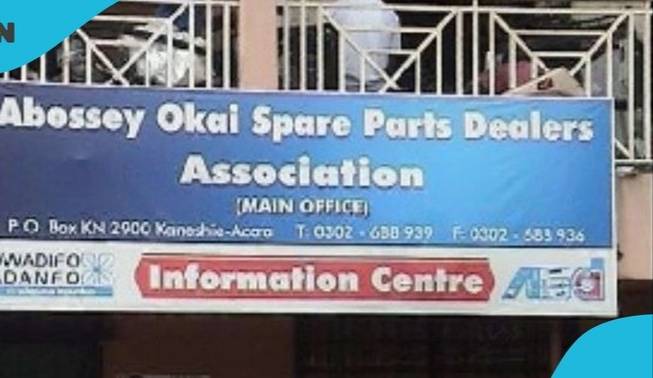A major and tense trade dispute is unfolding in the heart of Accra, drawing significant public attention. Spare parts dealers at Abossey Okai, one of West Africa's largest automotive hubs, have publicly reaffirmed their eviction order against Nigerian traders operating in the area. This means the Ghanaian business owners are not backing down from their demand for their Nigerian colleagues to vacate their shops and cease operations. The situation has created a standoff that threatens the livelihoods of many and has sparked a broader debate about law, community, and foreign business operations in Ghana.
The root of this conflict lies in the interpretation of national investment laws. The Ghanaian dealers firmly state that their position is supported by the Ghana Investment Promotion Centre (GIPC) Act. This legislation specifically reserves certain kinds of businesses, including market trading and selling goods from a store, exclusively for Ghanaians. The local dealers feel that the presence of Nigerian traders in these roles is a direct violation of this law. From their perspective, these foreign traders are operating illegally and taking away customers and income that rightfully belong to Ghanaian citizens. They argue that during a time of economic difficulty, protecting local businesses is not just a matter of law, but also of national economic security.
On the other side of the dispute, the Nigerian traders are facing immense uncertainty and fear. Many of them have invested their life savings into their businesses in Abossey Okai and have operated there peacefully for many years. They have built homes, raised families, and integrated into the local community in Ghana. A forced eviction would not just mean the loss of their business and primary source of income; it would also mean a devastating upheaval of their entire lives, throwing their futures into jeopardy. They feel targeted and unwelcome after years of contribution to the local economy.
This situation is a delicate and complex one, touching on much larger issues of national policy, regional ECOWAS trade protocols, and community relations. It highlights the challenges that can arise when immigration law and investment regulations meet the real-world realities of people's lives and economic survival. The current economic pressures in the country are likely adding fuel to the fire, as competition for limited resources and customers becomes more fierce.
Finding a peaceful and lasting resolution will require careful intervention. While the enforcement of national law is crucial, so is handling the situation with empathy and a focus on justice for all parties involved. Community leaders, representatives from both trader groups, and government officials from relevant ministries will need to engage in sincere dialogue. The ideal outcome would be a solution that upholds the law while also seeking a compassionate compromise, perhaps involving pathways to compliance or alternative arrangements, that prevents hardship and maintains peace in the important Abossey Okai business district.




No comments yet
Be the first to share your thoughts!